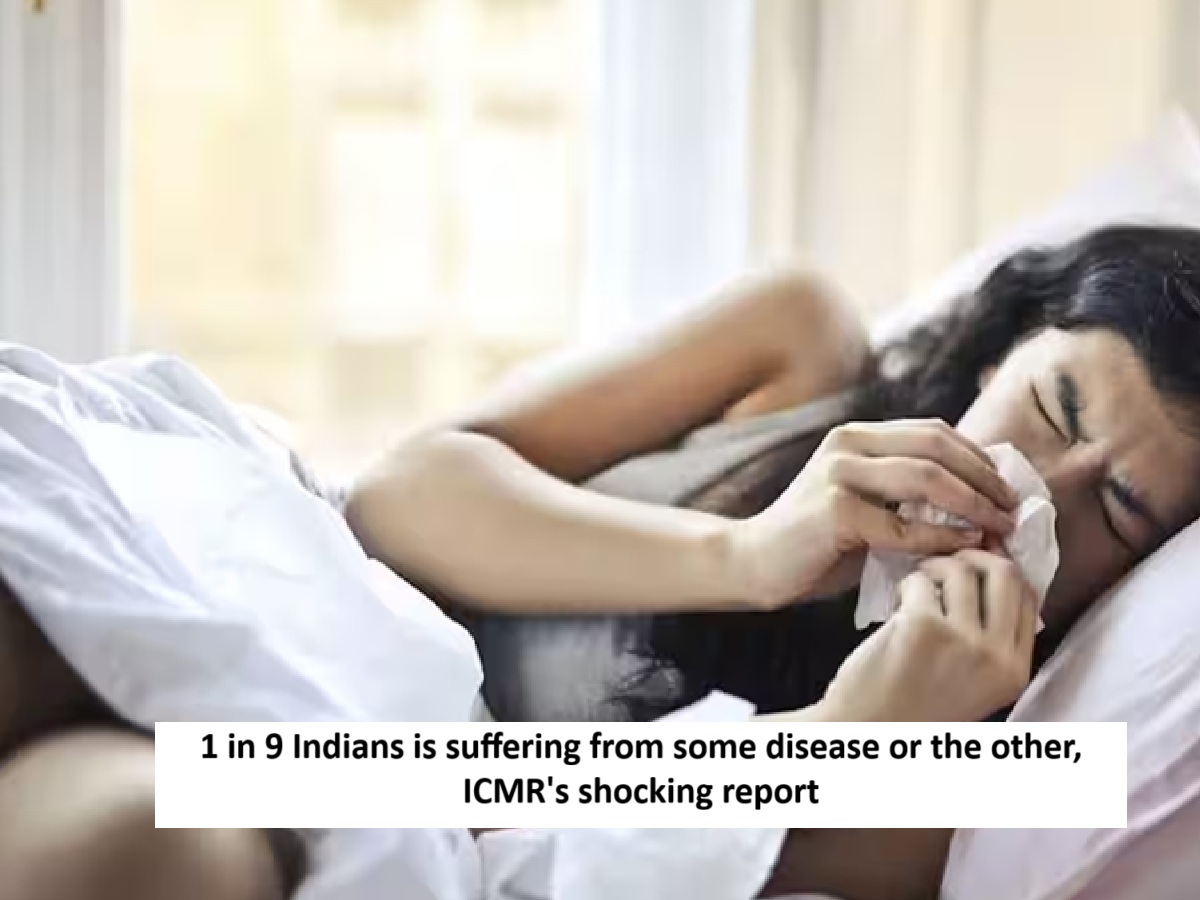
News Topical, Digital Desk : ICMR Report: The risk of infection is steadily increasing in India. A report by the Indian Council of Medical Research (ICMR) has released shocking figures. According to the report, one in every nine people in the country is infected with some infectious disease. ICMR has provided this information based on data from its Virus Research and Diagnostic Lab Network. So, let us tell you today how one in every nine Indians is infected with some disease and what ICMR's shocking report reveals.
How is the infection rate increasing?
According to the ICMR report, out of 228,856 samples taken between January and March 2025, 24,502, or 10.7 percent, were found to be infected. Meanwhile, out of 226,095 samples taken between April and June 2025, 26,055, or 11.5 percent, were found to be infected. This means that the infection rate has increased by 0.8 percent. According to the report, infectious diseases are continuously increasing in the country and, if effective measures are not taken in time, they could lead to a major health crisis in the future.
Which infections are at increased risk?
The ICMR report revealed that the most commonly reported infections in India include influenza A, dengue, hepatitis A, norovirus, and herpes simplex virus. These diseases are increasing the risk of respiratory infections, jaundice, diarrhea, and neurological disorders. Regarding the ICMR report, experts say that while the increase in infection rates may appear minor, it cannot be ignored. It can serve as an early warning for seasonal diseases and new infections. Experts say that if quarterly infection data is continued to be monitored, future epidemic-like conditions can be prevented. According to the ICMR, more than 4 million samples have been tested across the country between 2014 and 2024. Of these, 18.8 percent of samples have been identified as infectious pathogens. Experts believe that the main reasons for the increase in infectious disease rates include rapid urbanization, overcrowding, poor sanitation, and climate change, which provide a favorable environment for the spread of viruses and bacteria. The report also states that India is continuously monitoring infectious disease cases. Furthermore, experts have warned that this increasing trend in infectious disease rates could put a strain on the country's healthcare system in the future.
--Advertisement--

 Share
Share



